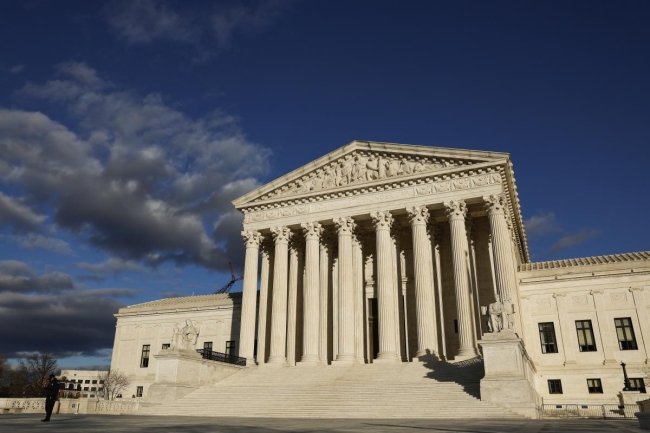Quite a few cannabis providers expend major means establishing new cannabis cultivars or refining well-known pressure genetics. As they do so, much more and more are on the lookout for procedures to guard people investments. Plant patents for purportedly novel cannabis vegetation are more and more widespread, but are plant patents actually the ideal way to secure cannabis genes?
In addition to traditional stability steps, there are 3 styles of mental property out there that could be employed to safeguard new hashish strains: (1) plant patents, (2) utility patents, and (3) the Plant Variety Security Act. Each and every solution has its individual set of benefits and comes with its personal particular registration necessities.
Plant patents for cannabis genes
Plant patents are 1 potential possibility to shield a freshly invented cannabis cultivar. Plant patents can guard new plant varietals that are able of asexual copy.
Cannabis is normally a sexually reproducing plant: each male and woman versions can add genetic content to offspring (but only female plants make the cannabinoid-abundant bouquets in which most people today are interested).
Cannabis vegetation, nevertheless, are also somewhat simple to reproduce asexually by means of cloning or cutting. Newly designed hashish strains, whether or not developed unintentionally or by intentional crossbreeding, may be thus eligible for a plant patent the moment they have been reproduced asexually.
Drafting and prosecuting plant patent applications is comparatively superficial when compared to other patent sorts, creating plant patents inexpensive and economical to get. But the trade-off, and the reason why plant patents are not incredibly preferred for hashish or other hybridized crops, is that the scope of security that plant patents afford to pay for is exceptionally constrained. Plant patents only protect genetically identical copies, reproduced asexually from the claimed plant.
“In the scenario of a plant patent, the grant shall consist of the right to exclude some others from asexually reproducing the plant, and from using, giving for sale, or advertising the plant so reproduced, or any of its parts….” 35 U.S.C. § 163.
That signifies to infringe a plant patent, 1 ought to straight clone the patented plant– a slender base for an infringement declare. A plant patent does not avoid somebody in possession of an authorized plant from crossbreeding or or else sexually reproducing it. Nearly, absent immediate proof of theft or breach of a patent license, it is amazingly tricky to confirm infringement of a plant patent.
Utility patents for hashish genes
Utility patents are the most popular flavor of patent and they are the favored instrument of important agricultural genetic providers. They are far more high priced to receive than plant patents, but can provide a considerably broader scope of security.
Utility patents are made use of to guard procedures, equipment, and chemical compounds. Because utility patents can guard novel chemical compounds, the inventor of a new cannabis pressure can assert a plant, seed, or other plant section with a individual genetic sequence (i.e., chemical structure).
Just one big gain of utility patents over plant patents is that they can prohibit cross breeding and sexual copy. This means that a utility patent proprietor can, if they want, stop a client from replanting seeds harvested from a accredited plant.
Utility patents demand that the inventor explain the claimed creation in ample detail to help a man or woman of normal skill in the art to make and use it as claimed (for after the patent expires). Many thanks to gene modifying technologies these kinds of as CRISPR, it may possibly be doable to fulfill that enablement necessity for some genetically modified cannabis strains by describing the gene editing process and reproducing the gene sequence foundation pairs. In other instances the place the gene sequences are far more complex or not known, as is usually the circumstance with hashish, the inventor will have to deposit samples with the Patent Office from which other individuals could reproduce the invention.
Plant Wide range Protection Act
The previous car or truck that can safeguard the IP of a new hashish pressure is the Plant Wide variety Safety Act of 1970 (“PVPA”). The PVPA supplies identical protections to a plant patent but was built especially to secure any new, unique, uniform, and steady sexually reproducing crops, such as hashish. The 2018 Farm Bill more extended this security to asexually reproducing vegetation.
The PVPA, having said that, incorporates a demanding necessity that at minimum 3,000 seeds of the claimed plant species be deposited with the U.S. Office of Agriculture. The deposit necessity provides an supplemental wrinkle for hashish breeders. All seed deposits should be built to the USDA depository in Fort Collins, CO. The USDA will not acknowledge any deposits for crops that are labeled as managed substances, which include cannabis.
Nonetheless, in January 2022, the DEA issued an belief stating that hashish seeds that with a lot less than .3 % delta-9-THC (i.e. really a lot all of them) are not controlled substances. This choice really should open up the PVPA security to cannabis cultivar, but it is not still obvious wither the USDA will abide by the DEA’s position and settle for cannabis seed deposits.
Summary
Just about every style of genetic protection arrives with its personal established of positive aspects and problems. In addition to bodily protection, dependable staff members, and nicely-drafted contracts, the ideal system for preserving proprietary cannabis genes is a woven network of patent and pseudo-patent legal rights.






More Stories
A New Way To Find A Reputable Car Accident Lawyer
Hakeem Jeffries’s historic election as House Democratic leader, explained
White House Says Immunity for MBS Was Unavoidable. Privately, They Weren’t So Sure.